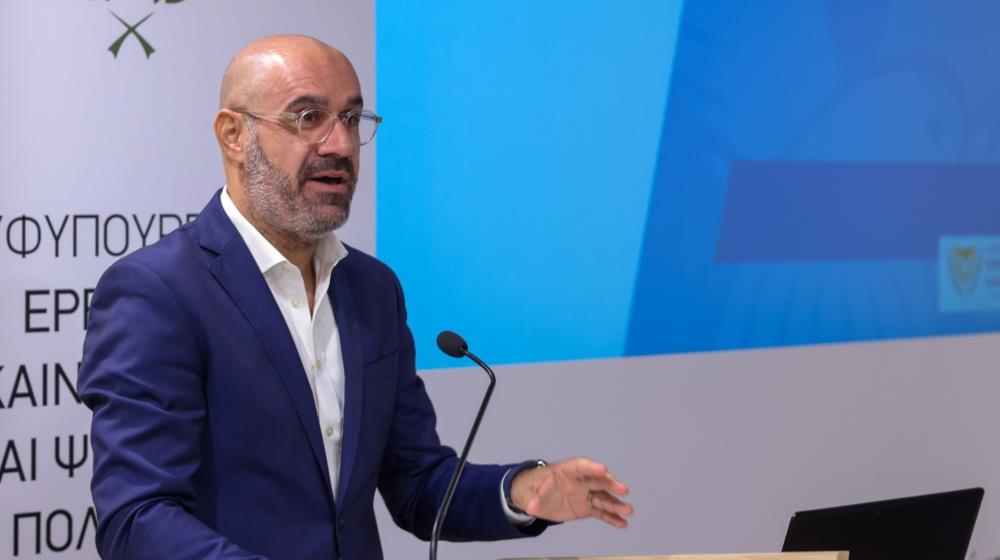Deputy Minister of Research, Innovation and Digital Policy Philippos Hadjizacharias has underlined the importance of introducing a legal framework governing artificial intelligence (AI).
Addressing a conference on AI in Nicosia, Hadjizacharias said that EU legislation for this purpose was at a mature stage, and when completed it will be the world's first legal framework for artificial intelligence. "At the state level, the Cypriot government approved the national IT strategy in 2020, however the legislation expected from the EU is crucial for the refinement and implementation of our national strategy," he said.
Hadjizacharias added that AI does not in any way replace human intelligence, “but is a means of enhancing human ingenuity and intelligence".
The most appropriate way forward, he said, would be to include the use of AI at both private and public level; though this should be accompanied by a thorough investigation into the challenges the use of such an advanced technological tool might bring.
"In order to be able to compete equally with foreign economies and to keep Cyprus high in competitiveness, we must introduce smart, innovative and competitive solutions for the purpose of development and improvement in a wide socio-economic spectrum," he said.
The need to create a legal framework for AI was also discussed last week at the MED9 ministerial meeting in Malta, Hadjizacharias said.
In his address, Professor Chrysostomos Nikias, President Emeritus of the University of Southern California (USC), Professor of Electrical Engineering and Classical Studies at the University of Southern California, said that artificial intelligence is about building a system to perceive the environment, learn from it and to reason.
“Cyprus has been making progress in the field of technology and has a great potential to grow its technology industry. It's almost the perfect place for an AI boom," he said. He also noted that many employees in Cyprus lack digital skills. In Cyprus, he continued, only 13% of university graduates are STEM graduates (of which 4% are women), in contrast to 26% in the EU. "We need to reignite interest in STEM in our education," he pointed out.
In his statements to journalists, Professor Nikias said that he was "positively surprised" by the research centres that exist in Cyprus and the innovations they promote, the Deputy Minister of Innovation and the conference that was organised. "Only the partnerships between academics, the private and public sectors can promote AI in this revolutionary field that is being created", he said.
(Source: CNA)









